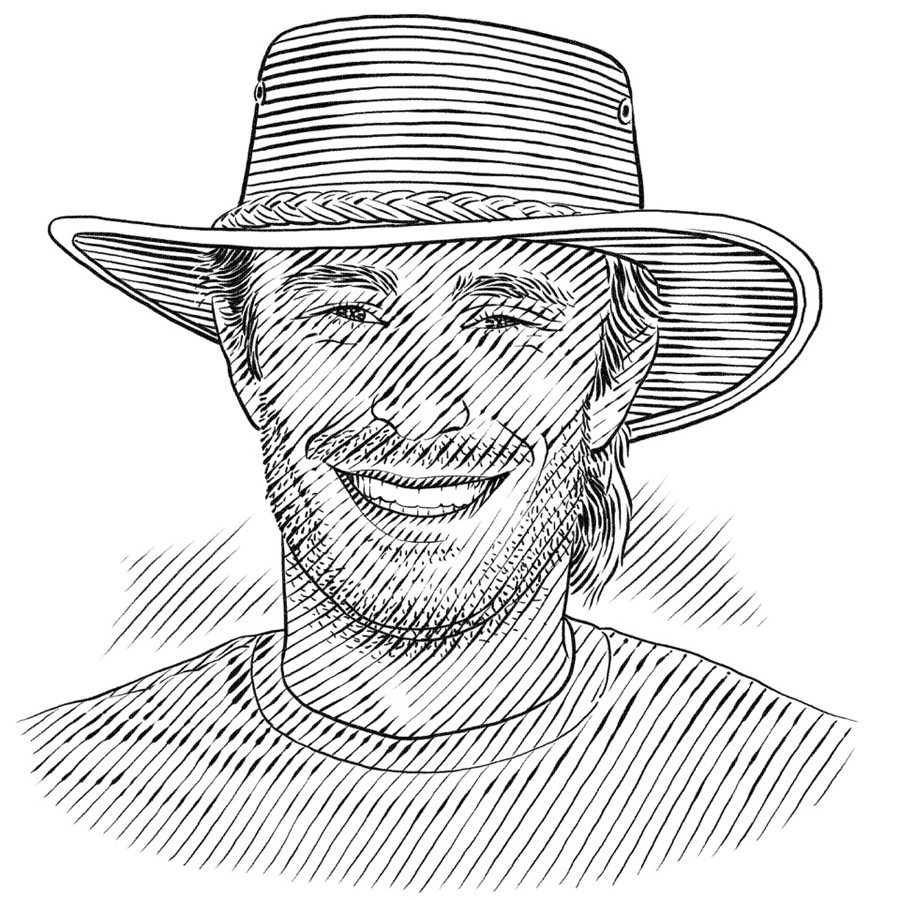Justin Rizzari

Who I am
For as long as I can remember, I have been fascinated by the ocean and the animals that call it home. I grew up in Texas on the Gulf of Mexico coast, where the ocean’s appeal expanded exponentially when I began surfing and fishing. Subsequent family trips to the Caribbean and Central America solidified my desire to pursue a life that is at one with the ocean. This eventually prompted me to enrol in a Bachelor’s degree course in marine science, with a focus on marine and coastal resources.
A major turning point came when I learned to scuba dive while studying for my undergraduate degree. The first dive I did was near the jetty of the ship channel at Port Aransas on Mustang Island, a barrier island off the coast of Texas. I can still remember my instructor asking me to repeat the skills I’d learned in the pool, but I could barely follow his actions as the visibility was, at best, slightly less than a metre. At the time I didn’t care what I could (or couldn’t) see; just the fact that I could comfortably stay underwater and marvel at all the fishes swimming by was enough to keep me hooked.
Learning to scuba dive coincided with being accepted to study for a semester in the Turks and Caicos Islands in the Caribbean. The programme involved courses in tropical marine ecology and resource management and it culminated in my first taste of conducting my own field research. Shortly afterwards, as part of my undergraduate degree, I did an internship in the Red Sea’s Gulf of Aqaba, Jordan, where I worked on an artificial reef project. These two experiences led me to realise that I could turn my love for and curiosity about the ocean into a fulfilling career.
Also while I was an undergraduate, I worked every summer as a deck hand on a sport-fishing boat that went out to catch and tag blue marlin, sharks and other large pelagic fish in the Gulf of Mexico. Through this I became fascinated by animals that dwarf humans – and large predatory animals in particular.
These experiences in combination landed me at James Cook University in Queensland, Australia, to do my postgraduate studies. I began the research for my Master’s degree by looking at the influence of marine reserves on the behaviour of reef sharks. I was subsequently fortunate enough to receive a PhD scholarship, which brings to me to where I am now.
Where I work
I am based at Townsville, which is located smack in the middle of Australia’s Queensland coast adjacent to the Great Barrier Reef World Heritage Area. My study area is the outer edge of the reef stretching from Lizard Island in the far north to One Tree Island in the extreme south, with individual sites at many of the offshore reefs between these two islands. When I send pictures home to show my family what I do, my father typically responds that I look more retired than he is. However, what they don’t see is me immersed in Excel spreadsheets and data analysis software, which actually takes up more of my time than swimming around looking for sharks.
What I do
Although there have been some cases of management success, reef shark populations around the globe are declining. Recent studies on many coral reef systems have come to differing conclusions about the importance of reef sharks to coral reef ecosystems. This variation indicates that the mechanisms that shape ecosystem processes may be location specific; in other words, what occurs in the Hawaiian Islands or Western Australia may not be applicable to other locations around the world.
This brings me to the overall purpose of my research: to assess the trophic importance of reef sharks to the coral reef ecosystems of the Great Barrier Reef. To do this involves a two-pronged approach. Firstly, I will use chemical tracers, stable isotopes in particular, and stomach contents to get an idea of the trophic groups and species on which the reef sharks are feeding.
Secondly, I will look at the large-scale relationships between reef sharks and fishes in other trophic groups, such as mesopredators and herbivores, and will try to discover to what extent their interactions are influenced by fishing or by the protection afforded by marine reserves. To do this work involves diving on a range of coral reefs within the Great Barrier Reef and, in effect, counting everything that moves. The project’s findings will identify the importance of reef sharks in maintaining the health of these reefs and will assess the effects of declining reef shark populations on the broader ecosystem.
